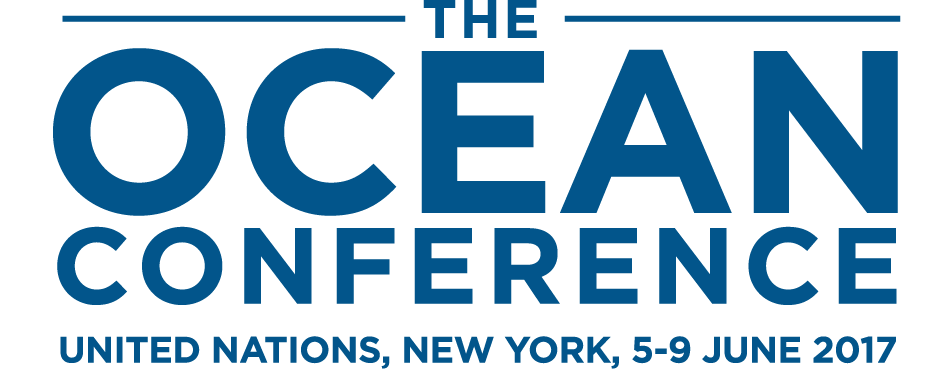Daily report for 7 July 2018
22nd Meeting of the Subsidiary Body on Scientific, Technical and Technological Advice (SBSTTA 22) and 2nd Meeting of the Subsidiary Body on Implementation (SBI 2) of the Convention on Biological Diversity (CBD)
SBSTTA 22 convened for its final day on Saturday. In the morning parties considered the remaining conference room papers (CRPs) on:
- Risk assessment and risk management of living modified organisms (LMOs);
- Marine and coastal biodiversity; and
- Digital sequence information (DSI).
In the afternoon, SBSTTA 22 adopted ten draft recommendations.
Risk Assessment and Risk Management of LMOs
Tim Strabala (New Zealand), Chair of the contact group on risk assessment and risk management of LMOs, reported back to plenary on the group’s deliberations.
SBSTTA Chair Theresa Mundita Lim introduced document CBD/SBSTTA/22/CRP.8. The Secretariat introduced text initially agreed by the Friends of the Chair group on synthetic biology. The new paragraphs recognize that, as there could be potential adverse effects arising from organisms containing engineered gene drives, before these organisms are considered for release into the environment, research and analysis are needed, and specific guidance may be useful, to support case-by-case risk assessment. They further note the conclusions of the Ad Hoc Technical Expert Group (AHTEG) on synthetic biology that, given the current uncertainties regarding engineered gene drives, the free, prior and informed consent (FPIC) of indigenous peoples and local communities (IPLCs) might be warranted when considering the possible release of organisms containing engineered gene drives that may impact their traditional knowledge, innovation, practices, livelihoods, and use of land and water.
With these, and some minor amendments, the recommendation was approved.
Marine and Coastal Biodiversity
SBSTTA Chair Lim introduced document CBD/SBSTTA/22/CRP.9 and contact group Chair Moustafa Fouda (Egypt) reported on the group’s discussions.
Delegates proceeded to review the document paragraph-by-paragraph. While they agreed on a number of minor changes, the main text was left with two key bracketed elements. The first disagreement pertained to a proposed reference to the United Nations Convention on the Law of the Sea (UNCLOS) as “providing the legal framework within which all activities in the oceans and seas must be carried out,” in accordance with UN General Assembly resolution 64/71. The UK, supported by MOROCCO and GREECE, and opposed by TURKEY, highlighted that this was consistent with previous CBD decisions.
Views further diverged over calling for collaboration and information sharing regarding the use of scientific information related to ecologically or biologically significant marine areas (EBSAs) “in the application of relevant area-based management tools,” with the UK, supported by GREECE, DENMARK, and ICELAND, emphasizing that management implications are beyond the scope of EBSAs. GERMANY and TURKEY opposed, stressing the relevance of sharing information generated in the EBSA process.
In discussing the annex on options for modifying the description of EBSAs, divergences over the need to stress the scientific and technical nature of reasons to modify EBSAs were resolved. Agreement was found on the modalities for modifying EBSAs in areas beyond national jurisdiction, which are to also apply for areas within national jurisdiction if the coastal state wishes. Questions that could not be resolved, inter alia, related to:
- whether to highlight that modifications of EBSAs in areas beyond national jurisdiction should be made without prejudice to developments in the UN General Assembly process on biodiversity in marine areas beyond national jurisdiction, with GREECE in favor, and TURKEY opposed;
- modifications to EBSAs within national jurisdiction, with disagreement relating to whether the updated EBSA description was to be submitted to SBSTTA and the COP for consideration; and
- modifications to EBSAs within the national jurisdiction of multiple states, with parties diverging on referring to the “relevant” coastal states, the states “which exercise sovereignty,” “with sovereign rights” or “with jurisdiction over the area,” and whether this should be done “in consultation with other states concerned.”
Similar disagreement remained regarding which actors can initiate the description of new areas meeting the EBSA criteria.
Digital Sequence Information
Hesiquio Benítez Díaz (Mexico), Co-Chair of the contact group on DSI, provided an overview of the group’s deliberations. He noted that the contact group could not reach consensus, the document contains many brackets, and the draft recommendations to the CBD COP and the Nagoya Protocol COP-MOP are completely bracketed.
JAPAN requested clarification on the status of DSI in relation to the criteria for new and emerging issues, contained in decision IX/29, noting that due process should be followed. The Secretariat noted that SBSTTA’s mandate was given directly from CBD decision XIII/16. He stressed while one way to address new and emerging issues is via the relevant criteria, this does not limit the ability of the COP or the COP-MOPs to place items on the agenda.
MEXICO lamented that the Convention still fails, after 25 years, to properly address its third objective. She emphasized that the claim that DSI is intangible and therefore not subject to benefit-sharing obligations when used for commercial purposes, jeopardizes the Convention.
Cameroon, for AFRICA, expressed deep concern about the lack of progress, noting that an important reason for failure to protect biodiversity is that its custodians do not derive the proper benefits that would incentivize the conservation and sustainable use of biodiversity. She urged all parties to find consensus at COP 14.
BRAZIL underscored that a pragmatic proposal was made to simplify measures of access for non-commercial research as a trade-off for fair and equitable benefit-sharing, lamenting resistance from some developed countries to discuss DSI with regard to the third objective of the Convention, and noting that “science, the conservation of biodiversity, and the Convention all lose.”
Consideration of L Documents
SBSTTA Chair Lim introduced the “L documents” for adoption.
CBD/SBSTTA/22/L.2 (protected areas) was adopted with an amendment, proposed by BOLIVIA, with VENEZUELA, and initially opposed by NORWAY, to require “to obtain” FPIC of IPLCs, rather than to require “steps be taken in order to consult to obtain” FPIC, in the context of territories and areas under the governance of IPLCs.
CBD/SBSTTA/22/L.3 (IPBES) was adopted with a minor, editorial amendment.
CBD/SBSTTA/22/L.4 (invasive alien species (IAS)) was adopted with an amendment reflecting the EU’s request that the AHTEG’s terms of reference contained in Annex II follow SBSTTA’s modus operandi, and that a clause for the AHTEG to report back to SBSTTA prior to COP 15 should be included. MEXICO reiterated that references to trade in “live species” should be replaced by “live organisms” throughout the document.
CBD/SBSTTA/22/L.5 (pollinators) was adopted with an amendment, proposed by BOLIVIA, to add a preambular acknowledgement of the importance of pollinators to IPLCs. A proposal made by MEXICO on genetically modified crops carrying traits for herbicide tolerance or insect resistance was bracketed.
CBD/SBSTTA/22/L.6 (synthetic biology) was adopted without amendments.
CBD/SBSTTA/22/L.7 (climate change) was adopted with an amendment, proposed by BOLIVIA, to include reference to ecosystem functions as well as services, in addition to textual clarifications to various paragraphs suggested by CANADA and FRANCE.
CBD/SBSTTA/22/L.8 (marine and coastal biodiversity) was adopted with amendments, including ARGENTINA’s proposal to place two sub-paragraphs, on who can initiate and propose modification of EBSAs within national jurisdiction, in brackets.
Updated Scientific Assessment of Progress towards Selected Aichi Targets and Options to Accelerate Progress
SBSTTA Chair Lim introduced document CBD/SBSTTA/22/CRP.1/Rev.1.
Vincent Fleming (UK), facilitator of the drafting group, noted the document is the result of extensive negotiations and significant compromise.
The EU noted that Annex I, which contains only reference documents, should be replaced by a footnote. Following a proposal by BELGIUM, brackets around welcoming the possible options to accelerate progress towards the achievement of the Aichi Targets were removed.
On a reference to Aichi Target 6 (fisheries), JAPAN suggested deleting reference to the “continuing” decline in the sustainability of the world’s fisheries. Regarding Target 9 (IAS), ITALY suggested the eradication of IAS already present.
CAMEROON proposed a new paragraph on Target 18 (traditional knowledge), to increase efforts in protection and respect for traditional knowledge and make use of information contained in local biodiversity outlooks on customary sustainable use of IPLCs to, inter alia, contribute to the reporting on progress in implementation of the Aichi Targets.
BOLIVIA suggested referencing “ecosystem functions and services” in different parts of the document. MEXICO proposed reference to production and consumption patterns in relation to the consideration of direct and indirect impact of policies on biodiversity.
With these amendments, the CRP was adopted as an L document.
Election of Officers
Delegates elected as new SBSTTA Bureau members: Marina von Weissenberg (Finland), with Norbert Bärlocher (Switzerland) as alternate; Hesiquio Benítez Díaz (Mexico), with Helena Jeffery-Brown (Antigua and Barbuda) as alternate; Larbi Sbaï (Morocco), with Moustafa Fouda (Egypt) as alternate; Bounkham Vorachit (Lao PDR), with Byoungyoon Lee (Republic of Korea) as alternate; and Sergiy Gubar (Ukraine) for a second term, with Oleg Borodin (Belarus) as alternate.
Closure of the Meeting
Rapporteur Samuel Diémé (Senegal) introduced the report of the meeting (CBD/SBSTTA/22/L.1), which was adopted with one minor amendment.
CBD Executive Secretary Cristiana Paşca Palmer highlighted that the meeting demonstrated the urgent need to accelerate progress towards achieving the Aichi Targets. Drawing attention to recommendations on protected areas, ecosystem-based adaptation and disaster risk reduction, and pollinators, she stressed the need to operationalize outcomes, engage new stakeholders, and develop transformative solutions.
SBSTTA Chair Lim urged participants to make the most of the 900 days left to implement the Strategic Plan and its Aichi Targets.
Maldives, for ASIA/PACIFIC, stressed the need for funding developing country delegates, and accelerating implementation of the Aichi Targets and development of the post-2020 biodiversity framework.
Austria, for the EU, expressed readiness to step up actions to maximize efforts to achieve the Aichi Targets. She noted that some topics, while of a scientific and technical nature, often entail political considerations, and looked forward to addressing them at the COP.
Bosnia and Herzegovina, for CENTRAL AND EASTERN EUROPE, highlighted SBSTTA 22 as an opportunity to enhance regional discussions, noting the benefits of regional cooperation for, inter alia, implementation, monitoring, and capacity building.
Egypt, on behalf of AFRICA, congratulated all on progress made during the meeting, and stressed that the good work needs to continue in Sharm el Sheikh.
Mexico, on behalf of LATIN AMERICA AND THE CARIBBEAN, highlighted the CBD is undergoing a learning process, inter alia, pointing to the mainstreaming of biodiversity across sectors and the development of the post-2020 biodiversity framework.
The International Indigenous Forum on Biodiversity, for IPLCs, called on parties to continue supporting the full and effective participation of IPLCs in CBD meetings.
Third World Network lamented the meeting was a missed opportunity to move forward on DSI, and urged parties to make concrete progress on the issue at COP 14.
SBSTTA Chair Lim gaveled the meeting to a close at 6:43 pm.
In the Corridors
With a sigh of relief, or possibly exhaustion, SBSTTA 22 finished its work on Saturday. Amid World Cup distractions causing occasional cheers and groans, delegates diligently worked through all ten draft recommendations to present to the COP in Sharm el Sheikh in November. Many were pleased with the draft recommendations on marine and coastal biodiversity, noting that the revised text was even stronger than the original conference room paper. While there is text remaining in brackets, there was optimism in the corridors that the issues could be resolved in Egypt. The future of the recommendations on DSI are still in question, however, as the entire document remains bracketed, and developed and developing countries have not managed to bridge the divide over access and benefit sharing of DSI on genetic resources. Those delegates remaining in Montreal for the SBI left the building looking forward to a well-deserved day off before negotiations begin anew.
-->
Specific funding for coverage of the Ocean Conference - June 2017, has been provided by the
XXX, XXX, and XXX
-->
IISD Reporting Services is a division of the International Institute for Sustainable Development (IISD).
Earth Negotiations Bulletin (ENB), ENB+, and Knowledge Management for Sustainable Development
are branches within IISD Reporting Services.
© 1992-2018, IISD Reporting Services. All rights reserved.







